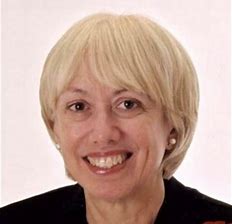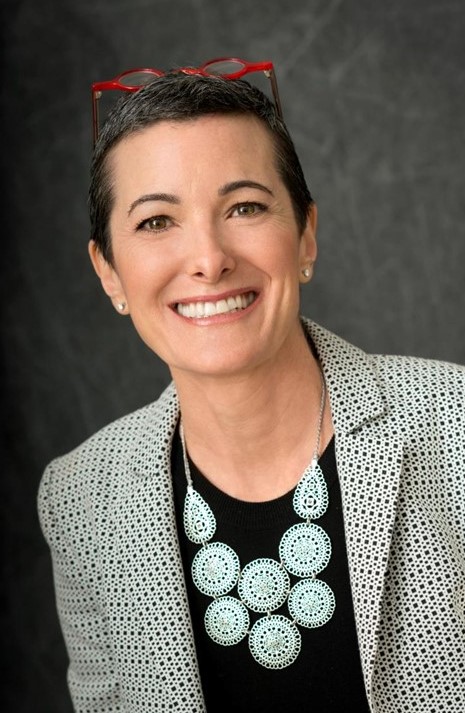My heart is broken for women who are abused in virtually every country in the world. I get angry, angry at sexist men and sexist cultures for their abuse. (For example, we recently published a heart-wrenching story Horrors of La Pampa: Does Anybody Care?)
The global war against women is also a war against motherhood. In both cases, women are objectified. In the one, men treat women as sex objects and slaves; in the other, feminists reduce women to instruments of commercial production in the marketplace.
 Ann Crittenden was an economics reporter for the New York Times and a Pulitzer Prize nominated journalist. She was a gifted “somebody” until she became a mother.
Ann Crittenden was an economics reporter for the New York Times and a Pulitzer Prize nominated journalist. She was a gifted “somebody” until she became a mother.
In The Price of Motherhood, Ann tells the story of leaving her journalism job after having her first child to focus on the work and blessing of being a mother. One evening at a party, a stranger asked, “Didn’t you used to be Ann Crittenden?” Because she had left the market for the hearth, she ceased to exist. This experience led her to write her seminal book on motherhood.
In her book, Ann writes:
The idea that time spent with one’s child is time wasted is embedded in traditional economic thinking…. The extraordinary talents required to do the long-term work of building human character and instilling in young children the ability and desire to learn have no place in the economists’ calculations. Economic theory has nothing to say about the acquisition of skills by those who work with children; presumably there are none.
The Judeo-Christian worldview created a generation of maternal feminists. Theirs was a child-centric world, what we might call a “mothers’ world,” marked by “care, connectedness, inter-dependence, and the other values necessary for nurturing human beings and building human relationships.”*
Money is more important than motherhood
In contrast, the atheistic-materialistic worldview created a generation of modern feminists who, like the whole generation, were focused on self and material things. Theirs was a “money world” marked by “radical individualism, relentless work, the quest for material success, and speed.”*
Professor Linda Hirshman of Brandeis University has noted, “Money is the marker of success in a market economy; it usually accompanies power, and it enables the bearer to wield power, including within the family.”
Shall we measure a person’s worth by how much money they make, or, rather, by who they are intrinsically?
The US Congress can agree on very few things. But when President Donald Trump, in his State of the Union speech, announced that there were more women in the workforce than anytime in US history, both political parties stood, in unison, to give him a standing ovation. In the USA, the “money world” dominates the culture no matter what people may say about the importance of the maternal and the family.
In her proactive book Being There, Social Psychologist Erica Komisar writes,
Having a successful career and making lots of money that allows you to buy more stuff doesn’t help you to be more present for the ones we love: children, spouses, family, and friends. Intimacy requires time; giving up your role as a primary caregiver comes with sacrificing physical and emotional intimacy with your child.
Modern feminism scorns motherhood
A mother’s world of being there is sacrificed for the money world of having things. Just a few generations ago, a generation shaped by the memory of the Judeo-Christian worldview honored mothers. But for the Western world, that time is long gone. Modern feminist culture is too often, in theory and practice, anti-maternal. Komisar writes:
In the distant past, cultures glorified the power of giving and nurturing life. Today many women see themselves as warriors in the pursuit of power, money, and work equality and have turned away from nurturing as too soft and without substance. And yet they miss the point that mothering is the concrete foundation of the house that withstands the storms later. Becoming a stronger woman has come to mean being like a man and delegating mothering to strangers who are condescended to, paid low wages, and given little job security and little respect. Many of these caregivers leave their own children to care for others’ children, a painful choice that many would dearly love to avoid.
The value of motherhood is shrinking even in the church
Tragically, this mentality has seeped from the modern world into the church. Maternal feminists of earlier generations, with their views grounded in scripture, understood that men and women were equal in dignity and honor. They saw in the Bible that women had a maternal role in society of equal importance to anything a man did, and often more important for the future of the family and the nation. But as Christians turned their back on the Judeo-Christian worldview, this understanding became a distant memory and eventually disappeared in the life of the church. The consequence of this is the rise of an egalitarian feminist mentality in much of the church. Mary Pride captures this in her book The Way Home:
Role obliteration is the coming thing in evangelical, and even in fundamentalist, circles. If women can’t be women, by golly they will be men! All because two or more generations have grown up and married without even hearing that the Bible teaches a distinct role for women which is different from that of a man and just as important.
The war against motherhood is a war against the family and a war against the future of our nations and eventually civilization itself. May we have the courage to stand against the twin tyrannies of sexism and radical feminism! May we have to courage to stand foursquare for the glory of the maternal and the mother’s call to nurture her children and through this work to nurture the nations.
As C.S. Lewis has said, “Children are not a distraction from more important work. They are the most important work.”
- Darrow Miller
*“Mother World vs. Money World,” Leslie Brody in Bergen Record, 11/11/02
This DM&F Classic post is a supplement to the book Nurturing the Nations. You can purchase the original work here.






